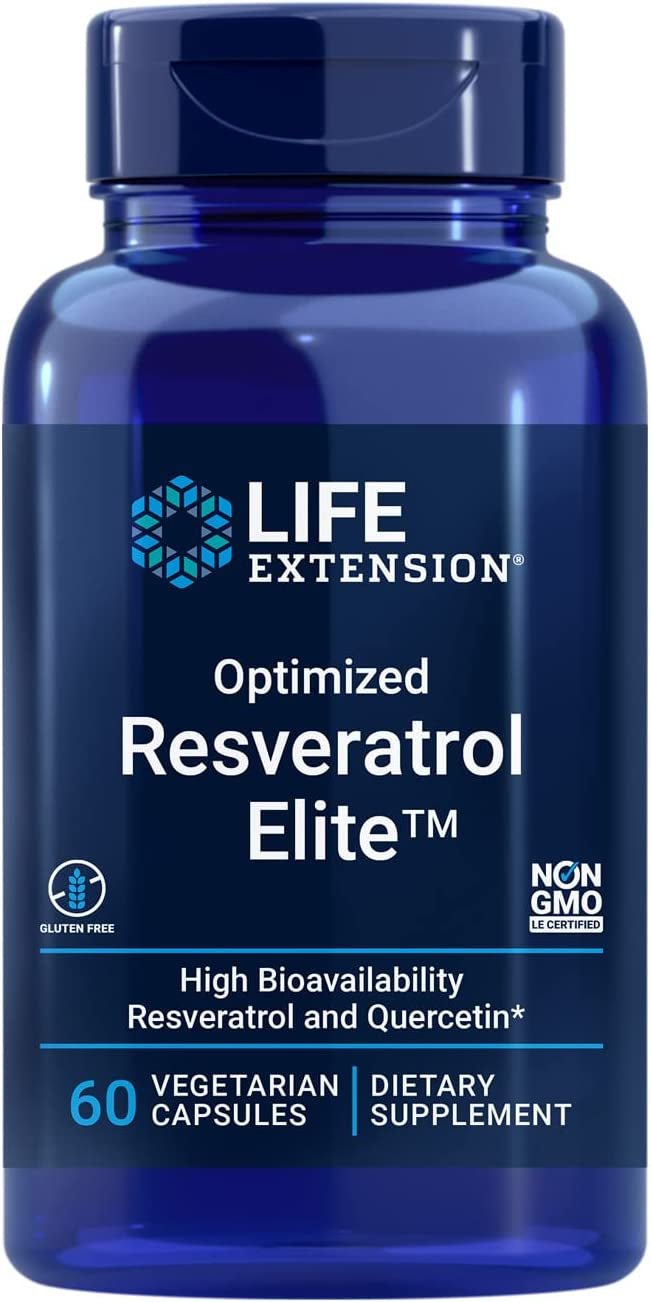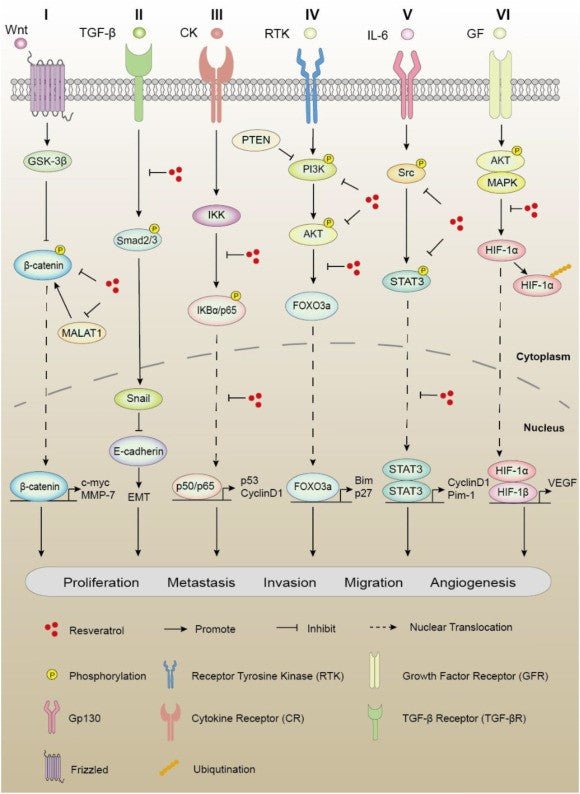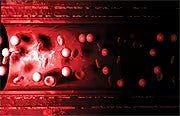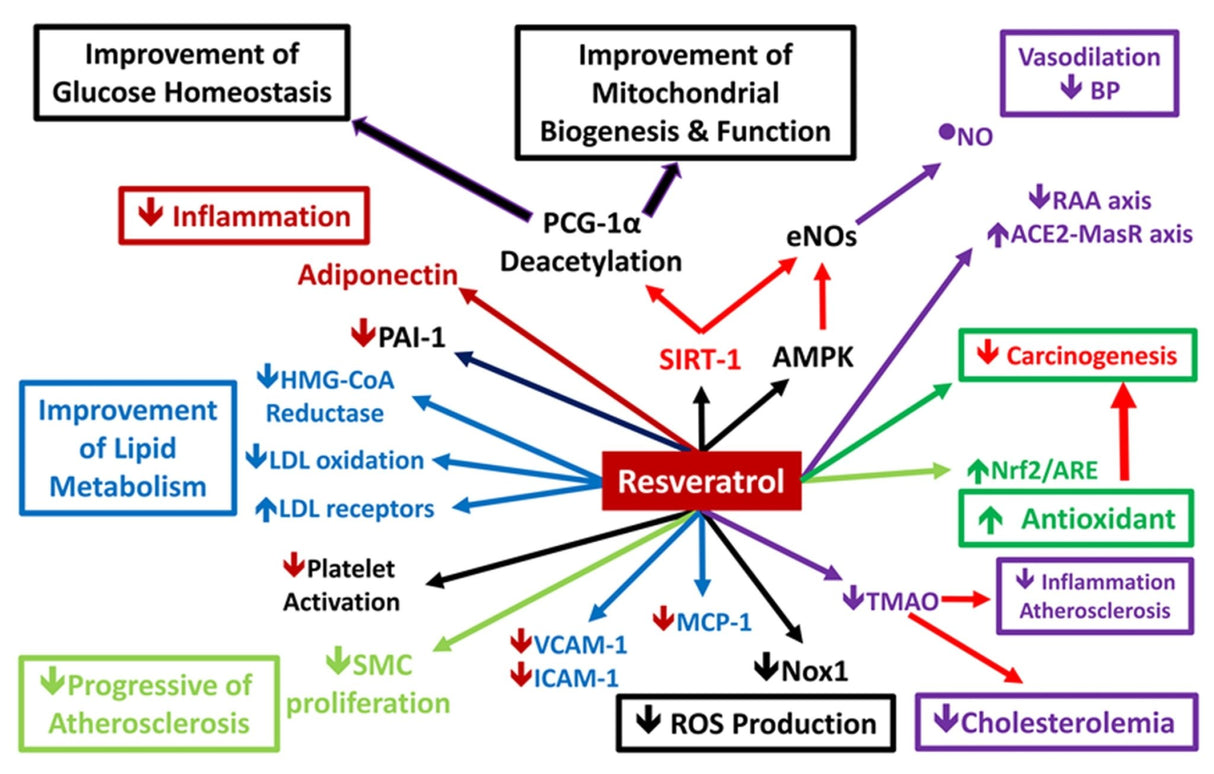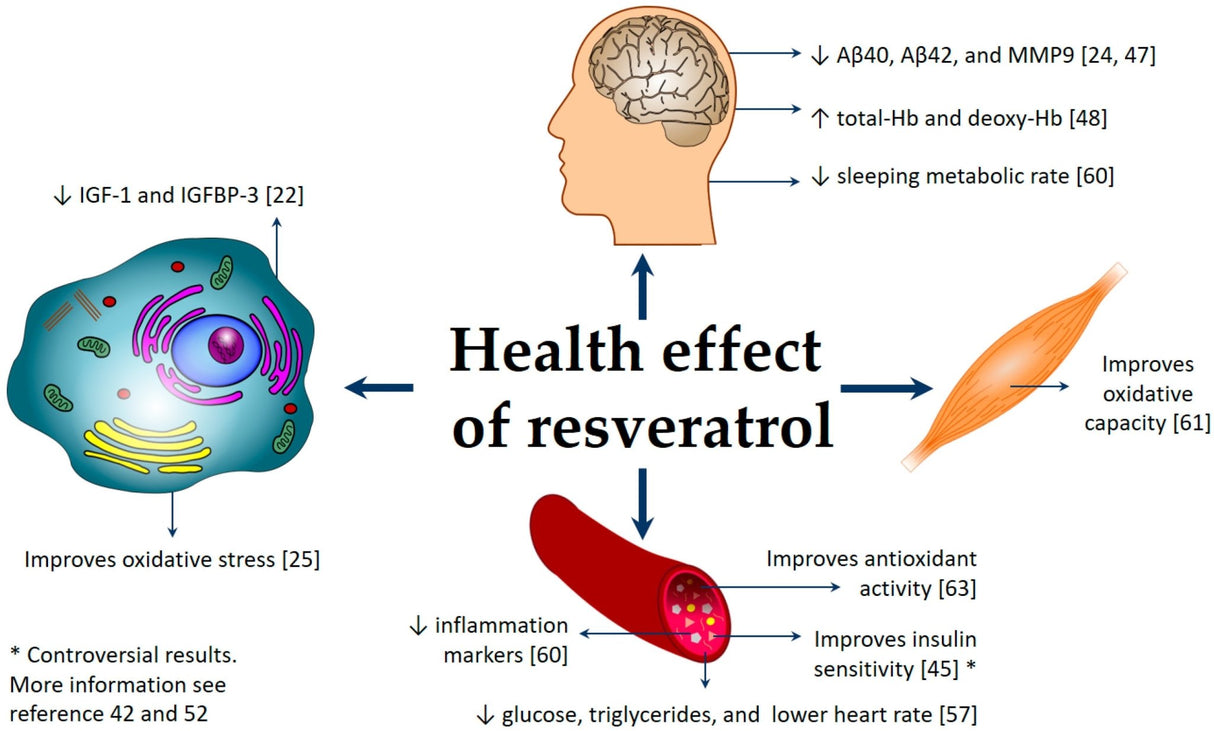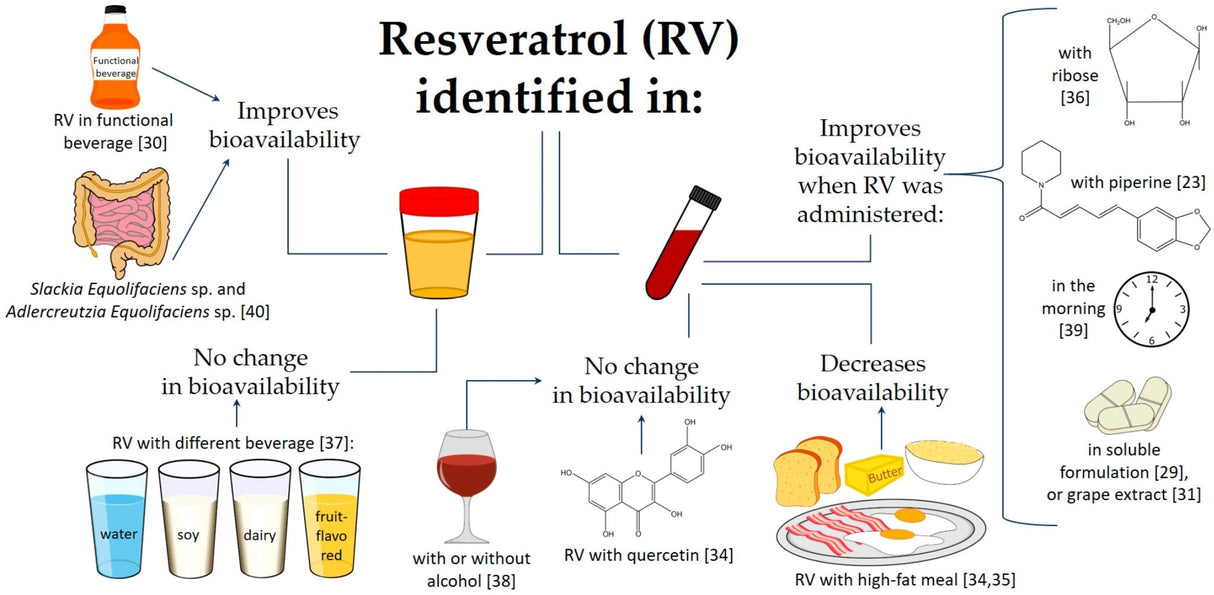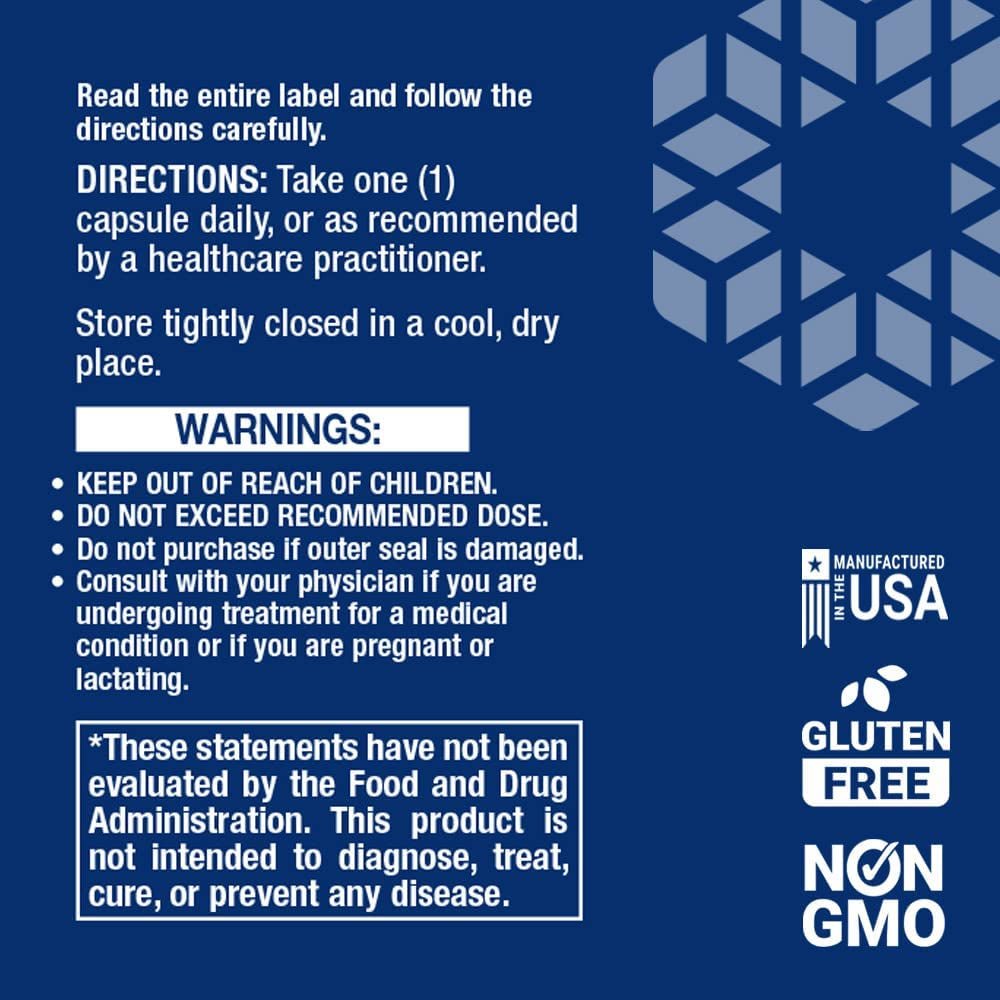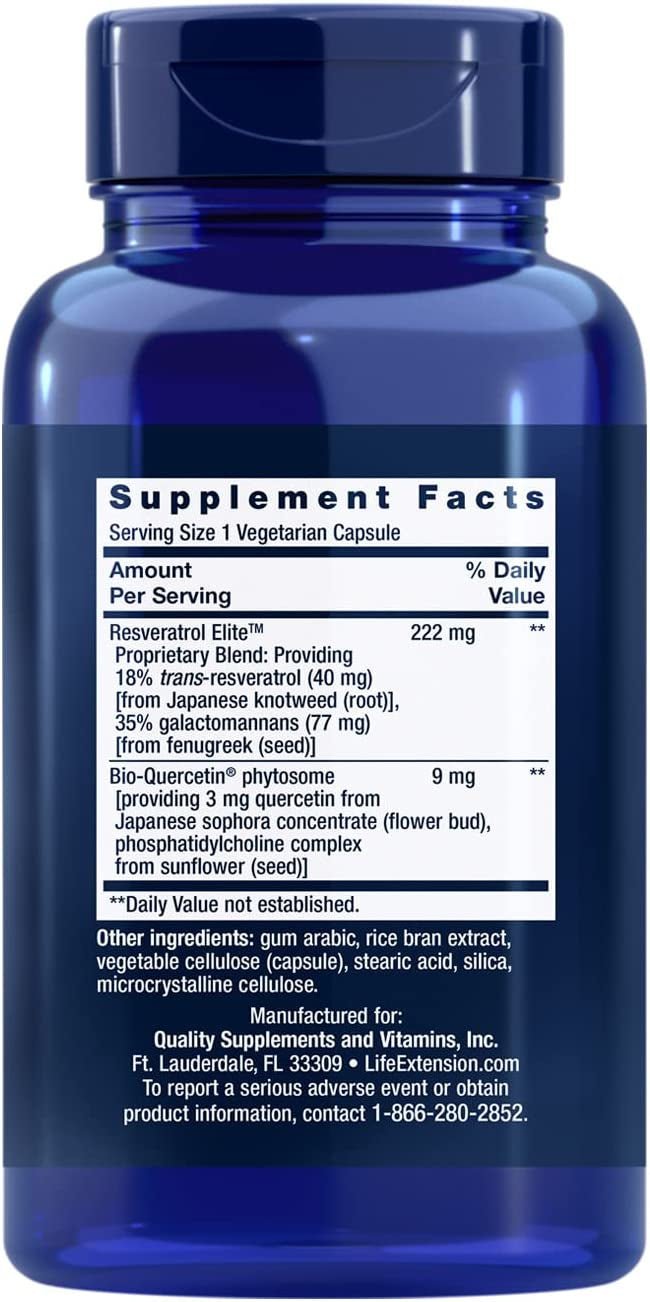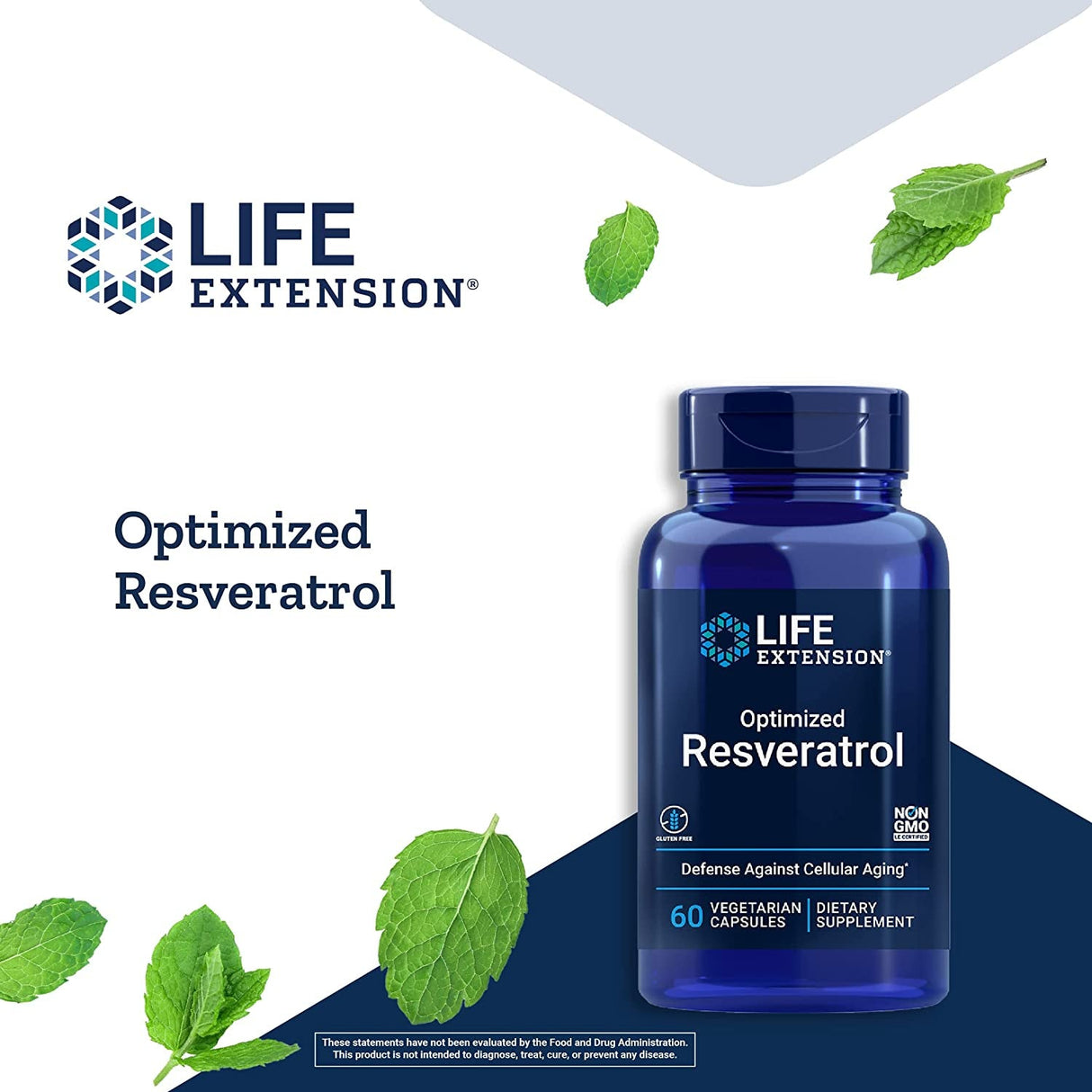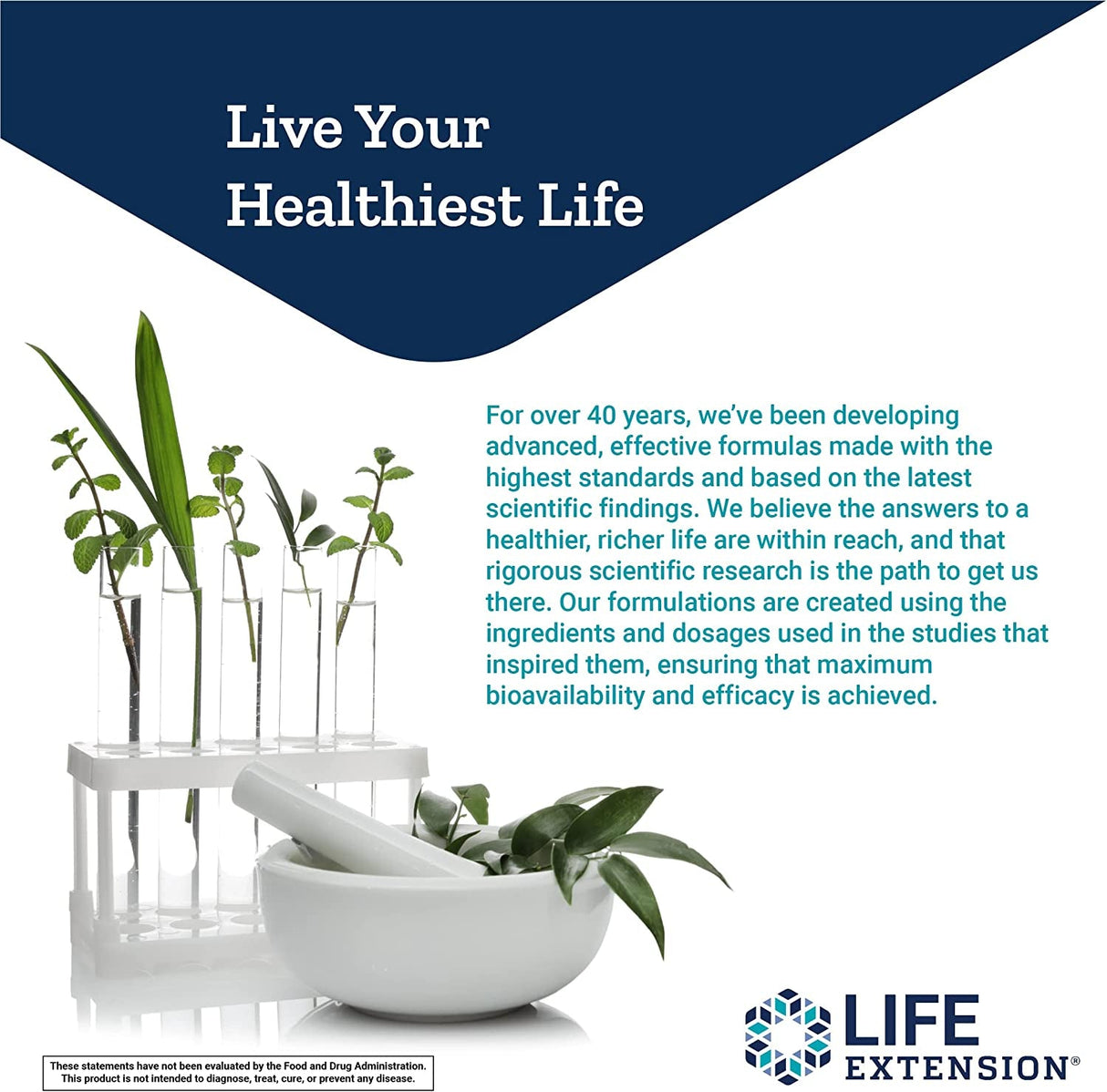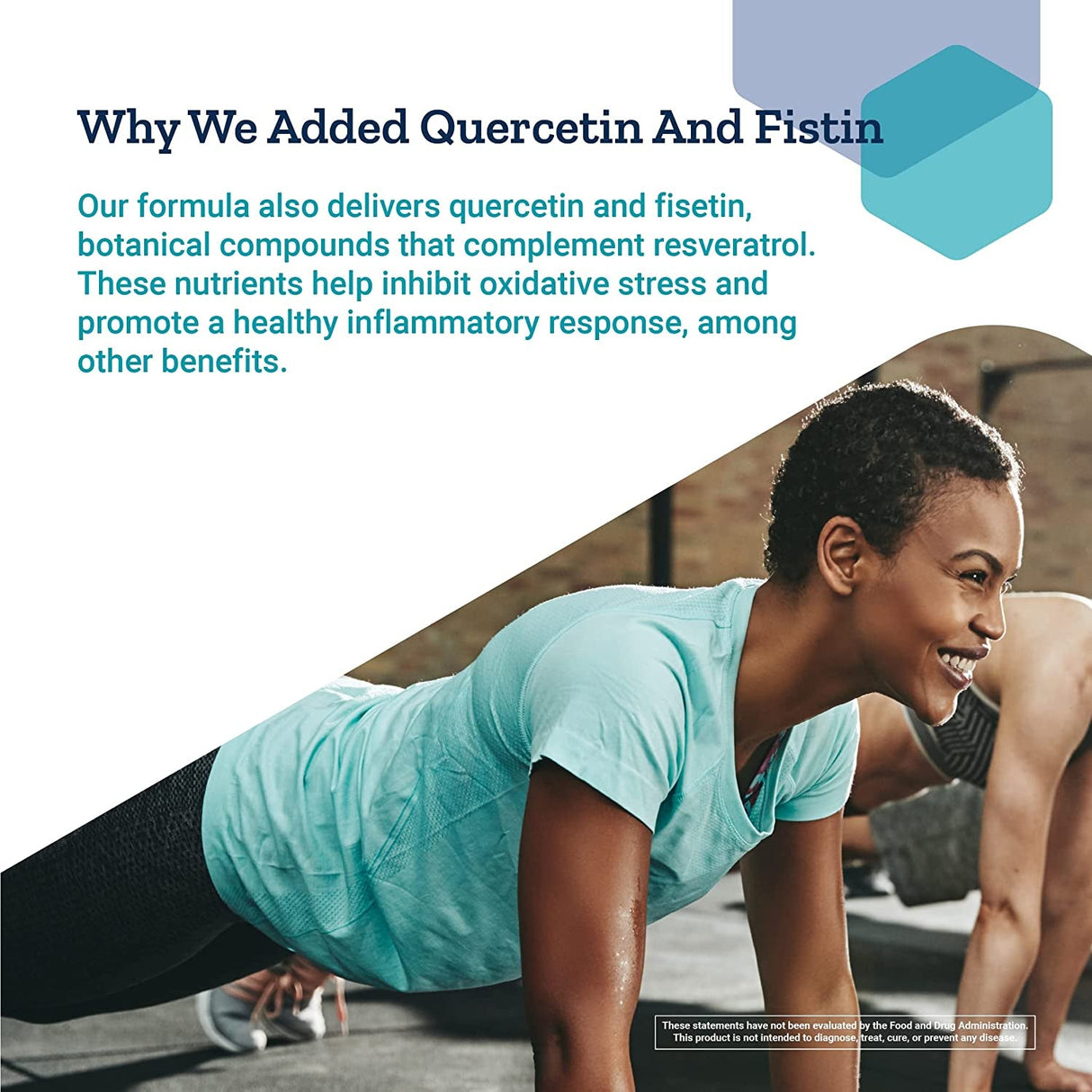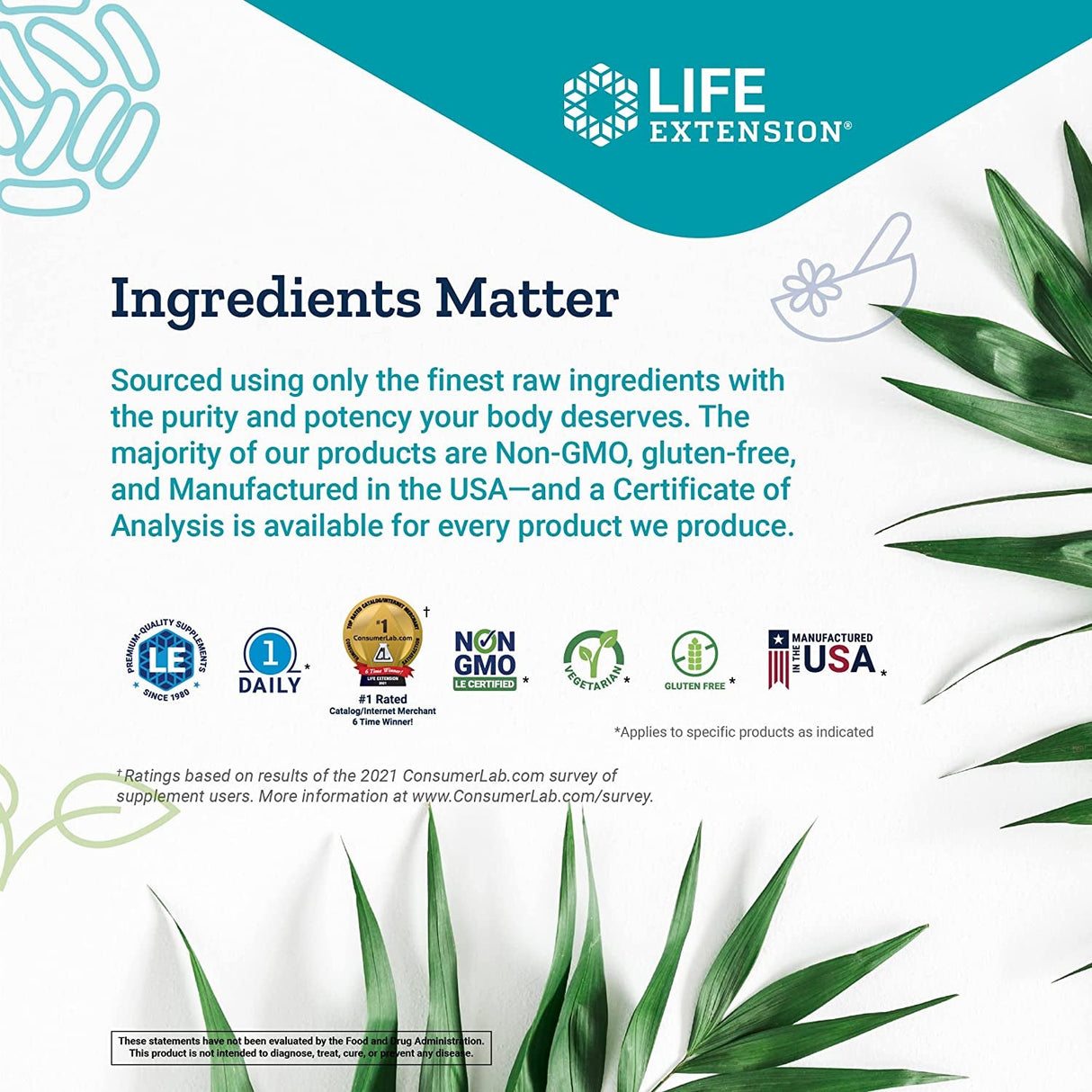Optimized Resveratrol Elite (60)
Optimized Resveratrol Elite (60) Black is backordered and will ship as soon as it is back in stock.
Optimized Resveratrol Elite™ – advanced support for heart, brain and cell health
Optimized Resveratrol Elite™ combines trans-resveratrol with Bio-Quercetin® in a hydrogel matrix based on galactomannans (from fenugreek). The purpose is to deliver the polyphenols more effectively to the body by protecting them in the gastrointestinal tract and promoting absorption – a delivery solution that is shown in the manufacturer's documentation to provide up to ten times higher bioavailability compared to unformulated resveratrol. The product has been developed for adults who want to support normal vascular function, cognitive performance in everyday life and the cells' protective mechanisms against daily oxidative stress. Gluten-free, non-GMO and vegan.
Health effects
• Heart and vessels (💓): Resveratrol has been thoroughly studied in connection with endothelium-related function and redox balance in the vessel wall, an area which is central to circulatory health.
• Brain and cognition (🧠): Clinical and experimental studies have investigated the role of resveratrol and quercetin in cerebral blood flow and cognitive function in everyday life.
• Cellular protection (🛡️): Resveratrol and quercetin are polyphenols that are described in research in connection with handling oxidative stress and maintenance of the cells' own defense systems.
• Synergistic interaction (🔗): Quercetin and resveratrol often occur together in nature; literature discusses complementary effects on redox and signaling pathways.
• Daily robustness (🌿): Polyphenol support is mentioned in research for normal immune and inflammation balance in the face of daily stress (neutral, non-medical description).
Top 2 main features + 1 surprise effect
• Polyphenol support for blood vessels and brain
The combination of trans-resveratrol and Bio-Quercetin® is used to support the body's own processes related to the vessel wall and cognitive function in everyday life.
• Enhanced delivery system
Hydrogel of galactomannans (from fenugreek) screens the polyphenols and can significantly increase bioavailability compared to unformulated raw materials.
• Surprising effect
Galactomannans not only serves as a carrier; they can also affect the solubility and stability of lipophilic polyphenols – an often underestimated part of the product's overall effect.
Technical details and specifications
Product type: Dietary supplements
Format: Vegetarian capsules
Properties: Gluten-free, non-GMO, vegan
Content per capsule
• Resveratrol Elite™ Proprietary Blend: 222 mg
- Gear 18% trans-resveratrol (40 mg) from Japanese knotweed (root)
- Gear 35% galactomannans (77 mg) from fenugreek (seed)
• Bio-Quercetin® Phytosome: 9 mg
- Gear 3 mg of quercetin from Japanese sophora (flower bud)
- Gear 30% galactomannans (2.7 mg) from fenugreek (seed)
Other ingredients (with function)
Microcrystalline cellulose (filler), vegetable capsule of cellulose (capsule material), sunflower lecithin (emulsifier), sunflower oil (carrier material), silica (anti-caking agent), vegetable stearate (lubricant), calcium silicate (anti-caking agent).
Dosage and use
Recommended daily dose: 1 capsule daily, preferably with food or as advised by a healthcare professional. The recommended daily dose should not be exceeded.
Allergens and considerations
Contains components from fenugreek (seed); persons with legume/legume-related allergies should consider individual tolerance. No known nuclear allergens listed; the product is gluten free.
Reservation
Allowed to be used by adults. All use of supplements is at your own risk and should be done in consultation with a doctor. The recommended daily dose should not be exceeded. The effect may vary from person to person. Dietary supplements should not replace a varied and balanced diet and a healthy lifestyle. Keep out of the reach of children. Pregnant/nursing people, people with medical conditions or who use prescription drugs should consult a healthcare professional before use.
Disclaimer
Uno Vita increasingly uses artificial intelligence for analyses, summaries and design of articles. We do not accept responsibility for possible errors or inaccuracies due to human or computer technology (AI) factors, or shortcomings in research. The information is not intended to replace professional medical advice, diagnosis or treatment. All use of information and products is at your own risk. Uno Vita AS does not claim that our products can cure disease.
Freedom of expression and right to information
Uno Vita reserves the right to share publicly available research and information on natural substances, dietary supplements and wellness technologies in line with the UN Universal Declaration of Human Rights (Art. 19), the International Covenant on Civil and Political Rights (Art. 19), Section 100 of the Norwegian Constitution and America's First Amendment.
Scientific references
-
Baur JA, Sinclair DA. Therapeutic potential of resveratrol: the in vivo evidence. Nat Rev Drug Discov.
-
Bhullar KS, Hubbard BP. Lifespan and healthspan benefits of resveratrol: mechanistic overview. Curr Opin Biotechnol.
-
Poulsen MM, et al. Resveratrol and inflammation: translational challenges. Biochim Biophys Acta.
-
Harikumar KB, Aggarwal BB. Resveratrol: a multitargeted agent for age-associated conditions. Cell Cycle.
-
Williamson G, Manach C. Bioavailability and bioefficacy of polyphenols in humans. Am J Clin Nutr.
-
Pangeni R, et al. Resveratrol: therapeutic potential and advances in drug delivery. Expert Opin Drug Deliv.
-
Timmers S, et al. Calorie-restriction mimetics: role of resveratrol. Biochim Biophys Acta.
-
Tomé-Carneiro J, et al. Resveratrol and endothelial function: human evidence. Nutrients.
-
Witte AV, et al. Long-term resveratrol supplementation and cognitive performance. J Neurosci.
-
Smoliga JM, et al. Resveratrol and human health: critical review. Mol Nutr Food Res.
-
D'Andrea G. Quercetin: multifaceted applications. Phytotherapy.
-
Li Y, Yao J, et al. Resveratrol, oxidative stress and neuroprotection. J Neurochem.
-
Hubbard GP, et al. Quercetin, inflammation and immunity. Nutr Res Rev.
-
Manach C, et al. Polyphenols: food sources and bioavailability. Am J Clin Nutr.
-
Arts IC, Hollman PC. Polyphenols and disease risk: epidemiologic perspective. Am J Clin Nutr.
-
Moon YJ, et al. Quercetin pharmacokinetics and metabolism. Drug Metab Dispos.
-
Andres-Lacueva C, et al. Resveratrol metabolism and conjugates in humans. J Agric Food Chem.
-
Zhang H, et al. Luteolin/resveratrol family and neuroinflammation (context). J Neurosci Res.
-
Catena R, et al. Endothelial signaling modulation by polyphenols. Cardiovasc Res.
-
Koyama J, et al. Fenugreek galactomannans as bioactive carriers (delivery focus). Carbohydr Polym.
-
Nazzaro F, et al. Encapsulation of phenolics to improve stability and bioavailability. Foods.
